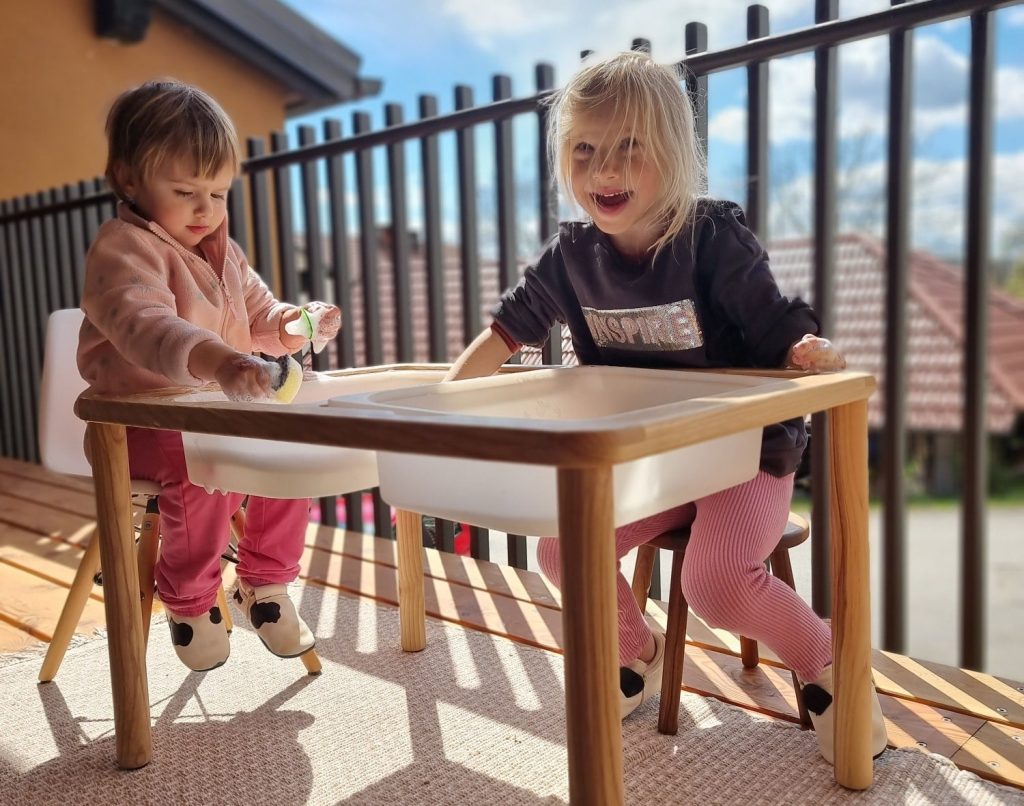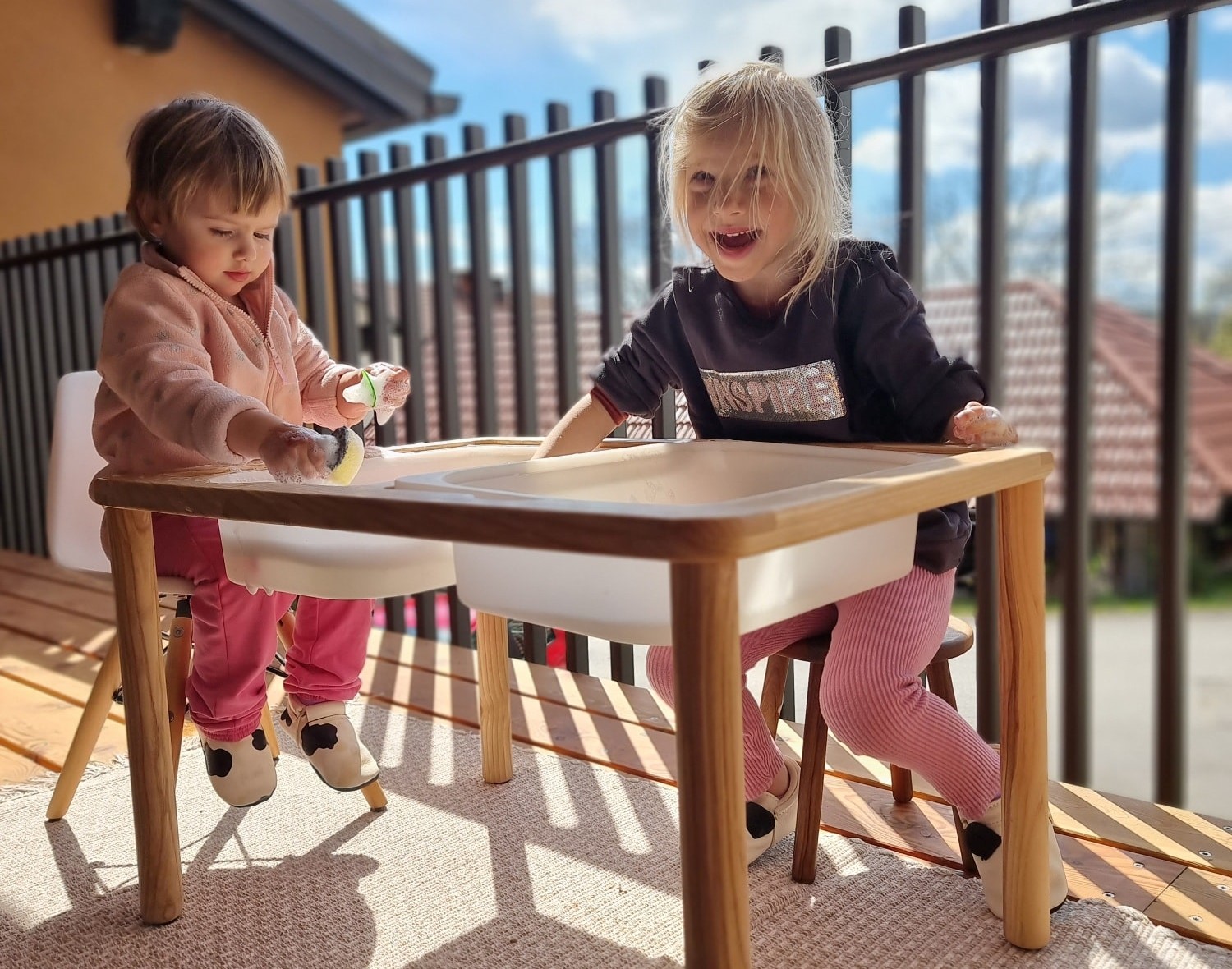Montessori is a method of pedagogy and education that has gained popularity all over the world in the last decade, and the philosophy of Montessori principles has also been transferred to schools and kindergartens, as many have adopted this educational method, especially private institutions.
Maria Montessori: Who was she and what is her story?
The field of education was named after Maria Montessori, an Italian doctor born in 1870. She was one of the first women in Italy to obtain an official qualification as a doctor. At first she wanted to become an engineer, but then changed her mind and followed her medical dream. She began to develop her pedagogical principles as early as 1897, when she attended lectures on this topic at the University of Rome. At the beginning of her medical career, she dealt a lot with children who had developmental disabilities. Because she also lectured internationally on education and work with children, she was considered a great defender of the rights of women and children with special needs.
Respect for the child
Montessori pedagogy is based on respecting the child’s temperament and personality, encouraging his independence, treating him as a unique being and adapting to his speed of development. Respect between parents and children should be mutual, relationships should be authentic, and both sides should respect the peculiarities of one and the other. This is very important for the child’s sense of autonomy, that he also counts and that he can do things on his own.
The absorbing mind
This principle focuses on enabling children to learn by simply exploring the world they were born into. The first 6 years of life are very important in the Montessori method, because it is then that the child develops key things, such as acquiring language and basic motor skills.
Montessori noticed that children are eager to learn and easily absorb information from the world around them. She believed that learning happens all the time. Children absorb information at all times, regardless of how they get it or in what form. It is desirable that we work as much as possible on various forms of learning when children are still small and remember things extremely quickly. This is also the time to instill basic principles and values in our children.
Sensory aids in learning are extremely important, as it develops and gains experience with all the senses. Children work with their hands and minds to build their world and knowledge through a series of trials and errors. Thus, we enable t. i. “self-education” about which we will write a little further down. The material is designed so that the child does not need the presence or intervention of the teacher.
Consideration of sensitive periods
You may have thought that at this point we are targeting the so-often used “stages” of child development, but in reality, sensitive periods do not refer to the stages that children often experience under the influence of emotions or hormones, but essential milestones in their learning process. Most of these sensitive periods involve the child’s interests focused on the development of a particular skill. Every child has a period when he is above average ready to learn, driven and absorbs information around him at an incredible speed. Montessori professionals are trained to observe their students and identify such sensitive periods in order to provide students with the right resources and tools to support and accelerate their learning.
The Montessori method recognizes three developmentally important age groups: 2-2.5 years, 2.5-6 years and 6-12 years. Students learn through activities such as exploration, various trials and experiments, order, repetition, abstraction and communication.
Pre-prepared environment
The Montessori classroom is an environment that has been designed to greatly optimize learning. It is designed to encourage children to engage in activities and materials of their own choosing. It gives them the freedom to do things on their own and at their own pace. Teachers should organize it in an orderly but independent way.
To really promote Montessori learning at home and in the classroom, arrange your child’s bedroom in a similar but comfortable way. Provide low open shelves stocked with recreational toys such as blocks and manipulatives. Make sure your child can move around and have plenty to do. They will optimize space and materials if they have easy access.

Sensory play enables the establishment of neural connections, the development of thinking, learning and creativity. It promotes the development of speech and language, cognitive development, the development of fine and gross motor skills and has a stimulating effect on the emotional and social development of the child.
That’s why our sensory table is a great way for children to learn to explore the world around them, solve problems, develop creativity and much more. You can fill it with water, foam, sand…
Self-education
Self-education (also called self-education) is the concept that children can educate themselves and learn independently. This is simply one of the most important beliefs/principles used in the Montessori method. Montessori teachers are responsible for creating an environment in which their students can do this with ease. They must also provide the inspiration, guidance and encouragement that students need for self-directed learning.
Recognizing this ability in children can sometimes be difficult, but it is necessary and healthy. Work and play go hand in hand with children and should be strongly encouraged, as they are one of the most fundamental aspects of their growth.

